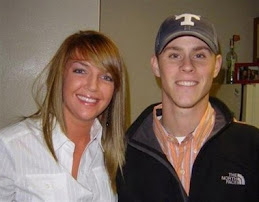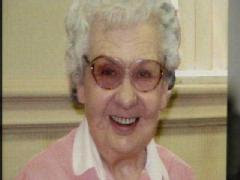Just weeks after some 20,000 demonstrators protested what they decried as unequal justice aimed at six black teenagers in the Louisiana town of Jena, controversy is growing over the accounting and disbursing of at least $500,000 donated to pay for the teenagers' legal defense.
Parents of the "Jena 6" teens have refused to publicly account for how they are spending a large portion of the cash, estimated at up to $250,000, that resides in a bank account they control.
Michael Baisden, a nationally syndicated black radio host who is leading a major fundraising drive on behalf of the Jena 6, has declined to reveal how much he has collected. Attorneys for the first defendant to go to trial, Mychal Bell, say they have yet to receive any money from him.
Meanwhile, photos and videos are circulating across the Internet that raise questions about how the donated money is being spent. One photo shows Robert Bailey, one of the Jena 6 defendants, smiling and posing with $100 bills stuffed in his mouth. Another shows defendants Carwin Jones and Bryant Purvis modeling like rap stars at the Black Entertainment Television Hip-Hop music awards last month in Atlanta.
The teenagers' parents have strongly denied that they have misused any of the donated money. Bailey's mother, for example, insisted that the $100 bills shown in the photograph were cash her son had earned as a park maintenance worker.
But civil rights leaders who helped organize support for the youths say they are concerned about the perceptions that are spreading.
"There are definitely questions out there about the money," said Alan Bean, director of a Texas-based group, Friends of Justice, who was the first civil rights activist to investigate the Jena 6 case. "I hate to even address this issue because it inevitably will raise questions as to all of the money that has been raised, and that is going to hurt the defendants."
Only one national civil rights group, Color of Change, has fully disclosed how the $212,000 it collected for the Jena 6 via a massive Internet campaign has been distributed. The grass-roots group, which has nearly 400,000 members, has posted images of canceled checks and other signed documents on its Web site showing that all but $1,230 was paid out in October in roughly equal amounts to attorneys for the Jena youths.
Yet that transparency did not halt acrimony over the fundraising from breaking into public view on Baisden's popular radio show last week, when Baisden invited Bell's father, Marcus Jones, to accuse Color of Change founder James Rucker of misapplying the funds.
Jones offered no evidence for his assertion. But Baisden told his listeners that Rucker "sounds shady to me," before promoting his own fundraiser, scheduled for this weekend, which aims to collect at least $1 million for the Jena 6 and other black defendants nationwide.
On the eve of the Sept. 20 civil rights march, Baisden advertised a book-signing and solicited cash donations for the Jena 6 families at an Alexandria, La., rally, but his business manager, Pamela Exum, declined to specify how much was collected or how the money was distributed.
Color of Change officials call Baisden's broadcast comments slanderous and say they are contemplating legal action.
"We are trying to clear our good name," said Mervyn Marcano, the group's spokesman. "It's distressing that right now the conversation around the Jena 6 is on a 'Jenagate' that doesn't exist, not the actual issues of how justice is administered in that town."
On Friday, after several prominent African-American bloggers criticized Baisden for his comments, the radio host issued a statement apologizing to Color of Change "for not seeking more reliable sources."
Civil rights groups report that donations to the Jena 6 defendants had slowed to a trickle in recent weeks as the story fell out of the headlines.
A spokesman for the NAACP, which collected nearly $20,000, including a $10,000 check from rock star David Bowie, said it is winding down its Jena 6 fund and preparing to distribute the remaining cash to the attorneys for the six youths after deducting some of its expenses.
The case, now a national civil rights touchstone, grew out of a September 2006 incident at the high school in Jena when three white students hung nooses from a tree in the school's courtyard in a warning directed at black students not to try to sit in its shade. School officials dismissed the nooses as a prank, angering black students and their families who regarded the incident as a hate crime.
A series of fights between black and white youths ensued, culminating in a Dec. 4 attack in which the six black students are alleged to have beaten a white student, knocking him briefly unconscious. Although the white student was not hospitalized, the prosecutor initially charged the six teenagers with attempted murder, while declining to charge white youths who had earlier attacked blacks with similarly serious crimes.
The prosecutor, Reed Walters, later reduced the charges against the black teenagers to aggravated second-degree battery and conspiracy. But civil rights groups have denounced the prosecutions as excessive and say they reflect racial injustice in the mostly white town.
Exactly how much money has been collected for the Jena 6 defendants is impossible to know, because many donors did not go through Color of Change, the NAACP or other mainstream groups and instead contributed directly to the defendants' families. Many Internet operators raised money by selling T-shirts or otherwise invoking the Jena 6 cause, but much of that money disappeared without a trace.
Tensions over the money have begun to surface among the Jena 6 families, most of whom are impoverished. Marcus Jones broke with the other families, for example, in criticizing Color of Change.
The largest remaining Jena 6 account, said by some activists close to the families to contain up to $250,000, is under the control of Tina Jones, mother of defendant Purvis.
Jones said her attorney had advised her not to reveal how much was in the account or how it had been disbursed so far. But she said the families recently agreed to transfer the funds into a trust account under the control of an outside trustee, to ensure the money was tracked and distributed properly.
"I think there are a lot of organizations out there collecting money on behalf of the Jena 6 that we didn't give authorization for," Jones said. "So when we're called and asked, 'Did you receive this money?' and we know nothing about it, then it becomes a problem. The finger is being pointed at us. We're not criticizing anybody. We're just trying to get a handle on it."
Story Here






1 comment:
"A series of fights between black and white youths ensued, culminating in a Dec. 4 attack in which the six black students are alleged to have beaten a white student, knocking him briefly unconscious. Although the white student was not hospitalized, the prosecutor initially charged the six teenagers with attempted murder, while declining to charge white youths who had [MOST DEFINITELY, WITHOUT A SHADOW OF DOUBT] earlier attacked blacks with similarly serious crimes."
Yeah, it's just a massive White Cracka Conspiracy down there, ain't it? Po' black kids, under the thumb of Da Man.
Talk about "Yellow Journalism". The Chicago Trib is a good bird cage liner, and little else.
Post a Comment